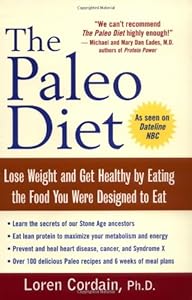
Some CSU students, professors and alumni are obeying the dietary laws of our ancestors.
Before modern agriculture, before the domestication of cows, humans ate only the simplest of foods that they could gather or hunt: fruits, vegetables, fish, grass-ranged animal meats, the occasional egg, nuts, healthy oils and seeds.
Ad
Walter L. Voegtlin, a gastroenterologist, introduced the modern Paleolithic diet in the 1970s as “The Stone Age Diet,” focusing on what foods were available to our ancestors.
“What is available in the natural world to eat?” asked Loren Cordain, a Colorado State professor in the Department of Health and Exercise Sciences and the current leading expert on the Paleolithic diet.
According to Cordain, humans have not been around long enough to adjust to changes in our diet. Salts, pure sugars, most grains and other large crops were not part of our original diet.
“If you knock out dairy, processed foods and refined sugars, (overall health) will improve,” Cordain said.
Cordain has conducted numerous scientific studies on the benefits of diet and health changes, including one studying the effects of diet on acne in the college age group.
“The whole idea behind (the paleo diet) is: ‘what are the good foods that we are programmed to eat?’ Humans have only had roughly 300 generations to consume dairy products,” Cordain said. “Salts are rare in the environment and must usually be mined.”
Even the most popular foods we consume such as potatoes, pasta, bread and cheese, were not available to our ancestors. These foods require agriculture and animal domestication, not to mention processing in most cases.
Angel Kwiatkowski, a CSU alumna, mother, and Fort Collins resident, attested to the benefits of the diet.
“I was having a lot of headaches and not feeling well,” Kwiatkowski said. “Now my energy is more consistent, there’s no after-lunch crash, and I sleep better.”
Ad
Both her husband and 1-year-old daughter also follow the regime. Kwiatkowski said the diet is more expensive, incorporating mostly organic foods, and takes a lot more planning and time.
For example, for her most recent Sunday meal, Kwiatkowski ate almond flour pancakes and bacon for breakfast, vegetable soup with chicken meatballs for lunch and pork green chili with a cabbage salad for dinner.
She also said she tries to eat what is in season and, up until December, she held a share in a community-supported agriculture program, where she was supplied with products that grew locally.
Aubrey Hilte, a sophomore fish, wildlife, and biology conservation major at CSU, also follows the Paleo regimen, but for different reasons.
Hilte is allergic to soy, lactose and nuts, so watching exactly what she eats is a requirement — not a choice.
“I like to take care of my body,” Hilte said.
For her, the diet can still be difficult, if somewhat less expensive than Kwiatkowski’s experience.
As a student, she allows herself more leniencies with the rules, focusing less on grass-ranged meats and more on what is available.
In the school dining halls, she often chooses menu items from the grill and eats lots of fruits and vegetables. Even there, however, she must be careful because many of the grills use oils with soy in them.
“You get really hungry. You have to eat a lot,” Hilte said.
The idea of eating more on a diet can be counterintuitive, but it is important for those on the Paleo diet.
Hilte is part of a small community of students who follow the regimen. According to her, they share recipes and sometimes cook together.
Whether the reason is dietary restriction, weight loss, overall health or just returning to human roots, the Paleo diet can be a viable option for all age groups.
“I would rather spend money being healthy than being sick,” Kwiatkowski said.
Collegian Writer Mariah Wenzel can be reached at news@collegian.com.








